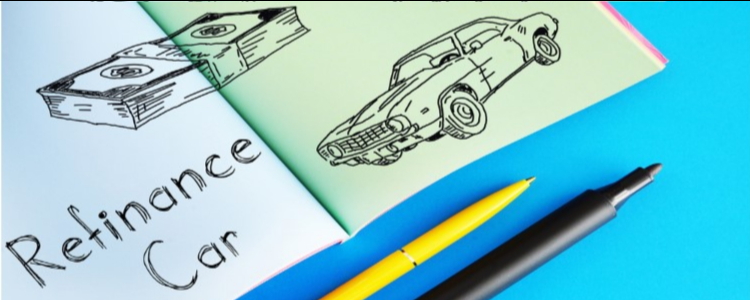Whether or not you should wait to refinance your car depends on a few factors. Right now, with interest rates being raised to battle inflation, it may be a good time to try refinancing if you need to save money on your auto loan. This is to say refinance now before rates start to climb higher than the current base rate they're at now.
Why Should I Refinance?
Picking the right time to refinance your car can be tough, especially when interest rates are rising. If you're not satisfied with your interest rate refinancing is an excellent way to change to a lower rate, if you qualify. The further we get into this year, the higher interest rates are likely to go.
Besides lowering your interest rate, another time when refinancing is a good option is when you need to lower your monthly payment. Qualifying for a lower interest rate will help but you can also refinance to a longer loan term which helps you save money each month.
Be aware, however, that if you extend your loan term without lowering your interest rate, you pay more for your vehicle in the long run.
How Soon Can You Refinance Your Car?
Typically, one to two years should pass before you consider refinancing. If you can't wait, refi is typically only an option right away if you have excellent credit. Anything less and you'll likely have to wait to qualify.
Credit score plays a big role in refinancing, too. If you don't have good credit, it should be at least better than it was when you took out the loan. Equity also plays a large role in whether or not you can refinance. Your car has to be worth at least as much as you owe on your loan, preferably, more.
Refinancing lenders have guidelines that your vehicle and loan must fit into in order to refinance your loan. This typically means no more than 100,000 miles or 10 years old, though this adage is being pushed as vehicles are made to last longer.
Times You Should Wait to Refinance
There are times when refinancing isn't the right choice. In these cases, you may not qualify for refinancing, and trying to refinance could only put more strain on your credit if it's struggling. If you are in any of the following situations, you're better off using your vehicle as a trade-in or selling it yourself in a private sale.
- Your car doesn't meet lender requirements – If your car is more than 10 years old, it may be more difficult to find a refinancing lender willing to take that risk, the same goes for vehicles with over 100,000. The more miles on the car the harder it is to refinance.
- You owe too much or too little – If you just took out your loan, or if your loan is about to be paid off a lender may not consider you for refinancing.
- You have negative equity – Find out if you have equity before you apply, get a 10-day payoff quote from your lender, and compare that to an estimated value of your vehicle. You can get an estimate of your vehicle's value from a number of websites by answering a few questions.
- Your vehicle is paid off – Unlike houses, cars can't be refinanced once they're paid off. To get money out of your vehicle once you own it you'll have to sell it, or use it as a trade-in toward the down payment of your next car instead.
- Your contract includes pre-payment penalties – If your auto loan included pre-payment penalties, it may not be worth refinancing your vehicle. Sometimes, the penalty offsets any savings you might have gained.
















